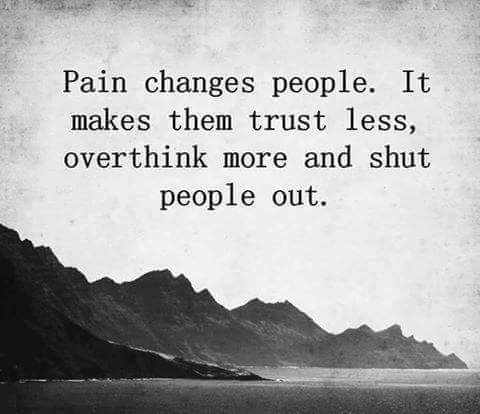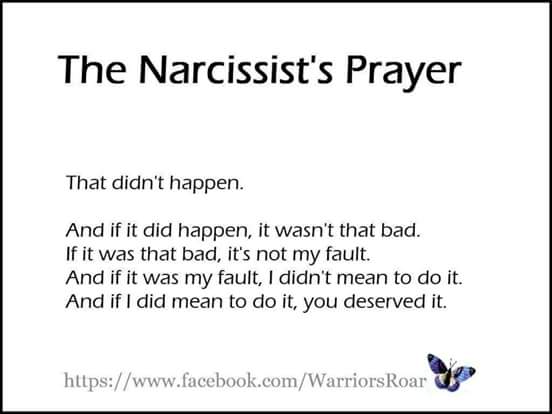My FIL and my husband enabled my MIL to not deal with her control issues and her dislike of me — which was probably because I defied her attempts at control, from the get-go.
Planning the wedding was a nightmare (and, needless to say, I did not have an older sister or a mother helping me out on that one).
We were planning the wedding in Boston, long-distance from Texas, long before the internet would have made it so very easy. His mother had it all figured out: we would get married in the chapel of the school at which she worked. I didn’t much care where we got married, but I wanted the processional and recessional to be the traditional (secular) selections, and kept after her to make sure her chosen venue would allow it (some church venues don’t, because it’s secular music).
I suspect I earned her enduring wrath the day she called and told me, “I found out about your music.
“You can’t have the music you want, but that doesn’t matter.“
I immediately replied, “Well, we can’t have it there then.”
And apparently to say that to her was unthinkable.
It wasn’t unthinkable to tell a bride she can’t have her chosen music, mind you, but it was unthinkable to deny her what she wanted.
Looking back, I’m surprised I prevailed, but I did, and without even a fight.
Something in my voice must have told her that this was Not A Thing To Mess With. I got the music I wanted, in a 130-year-old church instead.
And I got one pissed-off mother-in-law, who basically, childishly, pretended I didn’t exist for the rest of her life:
After both my in-laws died, when we were cleaning out the house, I was talking to a neighbor who had been close to them. Along with praising my MIL for how warm and wonderful she had been to her — “treated me like a daughter” — and if you don’t think that was a twist of the knife, you are much mistaken — she also said, “I’ve never heard a thing about your wedding. You could have been married in Jamaica for all I knew.”
In the nearly 20 years that I was married to her son, no one put a foot down and said, “Look, she’s here to stay, you need to figure out why you don’t like her and deal with your issues, because they are YOUR issues. She hasn’t done anything to deserve the way you treat her.”
Well, that isn’t 100% true. It happened a time or two, with varying degrees of success. I can remember a meal at our previous house where the four of us actually had a 4-way conversation — the only one I can remember — and it was really very nice. And it happened once.
Most of the rest of the time, in person or on the phone, his parents spoke to their son, and not to me.
At one point during that visit, we took them to a place they wanted to see. There were walking paths, so my husband and I went for a walk around the perimeter. His parents walked for a bit and then sat on a bench. When we walked back up to them, his mother looked directly at him and asked, “[name], how was your walk?” She made sure it was clear that she was not asking both of us. Only her son.
Standing in the bookstore, his dad came up to the two of us and said, “[name], did you ever read The DaVinci Code?” My husband said, “Yes, we both did.” That small statement changed the conversation to be among the three of us, not just the two of them. But his mother was nowhere nearby.
Another episode occurred when she and I were buying tickets for a ferry. The woman at the window asked my MIL where they were from and why they were visiting. She replied, “Oh, we’re here visiting our son.” With me standing a foot away. I said pointedly, “And his wife.”
I also distinctly remember another meal during that same visit. After I had cooked it and served it and we all ate it, his dad looked not at me, sitting across from him, but diagonally across the table to his son, and pronounced, “She cooks a good meal, [name], you can keep her.”
At the time this infuriated me. I considered it belittling, to refer to me as some kind of property, even one “worth keeping” — and was angry as hell that he apparently just couldn’t bring himself to look at me and compliment me directly.
Now I know that he wasn’t allowed to treat me nicely. If he had looked at me, spoken directly to me, and complimented me, there would have been hell to pay, I am sure, in the form of his wife’s wrath. But it was OK to speak to me in the bookstore, because she wasn’t there with us.
We once got a phone message on our anniversary. His father left a message saying, “[Name], this is your father calling to wish you a happy anniversary.”
Never mind that by definition, an anniversary is celebrated between TWO PEOPLE. Without me, there wouldn’t BE a damned anniversary.
But of course, there was that thing with the wedding and the fact that she didn’t get her way…
(there is in fact whole a list of weirdness and conflict that happened around our wedding and his mother, including that she used the same pattern for her dress as I chose for the bridesmaids. And she doubled the cost of the dinner without telling me, and then skipped out on paying the bar bill after she said she would. The best one was when she decided that one usher (her other son) wasn’t quite good enough, and she wanted her other son – the groom! – to leave the altar and come to the back of the church to also escort her to her seat. I have a fond memory of telling my mother this, to which my mother replied, “If she gets both of hers [sons], I want all four of mine.”)
Over time, his dad started signing cards “Don or Dad” which I took to at least be a tacit admission that I existed at all. I’m not sure how he got away with it. I figure he probably signed the card after she did, and put it in the envelope.
Because no one could call her on the carpet about it. There was way too much history there. She had an alcoholic mother — she became parentified and had to do her mother’s job. And from a very young age, she had to be in control.
When it came to the wedding planning, we later joked that I was probably the first person to tell her “no” in 40 years. (And I figured out why her own daughter flat-out refused to have a big wedding.)
My MIL (and everyone around her) would probably have benefited from some therapy, but she was of a generation and a culture that didn’t do that kind of thing. You toughed it out. Maybe you prayed, but you kept it to yourself and god.
And, you ruined relationships — because prayer is a shitty substitute for therapy. Therapy actually works a lot of the time.
The result of her inability to grow, to work through her own issues, affected three relationships. Four, actually, if you count theirs. When she was suffering from dementia later in her life, there was a lot of anger that came out against her father, and was directed against her husband, who was trying like hell to take care of her. It was so much more difficult for him than it had to be.
And that’s not love.
“There is a difference between helping someone who is disabled, incapable or otherwise infirm versus helping someone who is resisting growing up and taking care of what every adult (or child, for that matter) has to be responsible for: herself or himself. When you find yourself in any way paying for someone else’s responsibilities, not only are you stuck with a delayed ending, but you are probably harming that person.” ~~ Dr. Henry Cloud
If not actually harming, then at least you are enabling them not to face reality, denying them a chance to grow as a person.
I can see the same thing happening in my FOO. My sister doesn’t let her husband contact us. This controlling behavior spills over into the rest of the family as well. And it goes without saying that Joe can’t be friends with us, even if he wanted to.
But dictating who another person can be connected with is inappropriate and manipulating. Make your own choices, sure, but don’t force those choices on another person, no matter how close. You get to be responsible for you — they get to be responsible for them.
Anything else is just a way of avoiding hard work.
If you have to control others’ interactions, if you can’t deal with letting other people be responsible for themselves, if you have to force others to also pretend that a family member doesn’t actually exist because you can’t deal with them — then you probably need to do some.
After seeing what my FIL went through, I can’t imagine how my brother and my BIL will deal with their wives if they ever develop dementia. As with my MIL, unresolved issues from early life can be reactivated, but by then it’s too late to deal with them cognitively.
“Relatives and front-line care staff often notice a history of trauma in the lives of people with dementia. Investigations into the backgrounds of an initial 51 people with dementia identified what appeared to be unusually high levels of childhood loss, particularly the death of fathers…
“When I was considering with the son of one of them the concept that the burying of traumatic memory might constitute a route into dementia, he commented that his father and numerous uncles and aunts had the advantage of being able to complain heartily to each other about their childhood experience whenever they met at family gatherings over the years because their father was profoundly deaf and couldn’t hear what they were saying(!)”
“Having someone to believe and validate one’s traumatic experience is an essential part of the healing process. Siblings may, at least sometimes, be able to help each other keep painful memories within conscious awareness rather than feel obliged to bury them.”
But of course, you’d have to love the other person, really care more about them than you do your own comfort, to go and face your issues and deal with them, after a lifetime of trying to bury them. Of course my sister and SIL won’t do it for me, as my MIL did not. But maybe they should do it for their spouses and children.
 (from “Creating Moments of Joy for the Person with Alzheimer’s Or Dementia“)
(from “Creating Moments of Joy for the Person with Alzheimer’s Or Dementia“)














